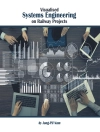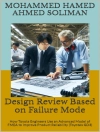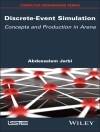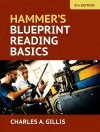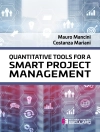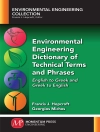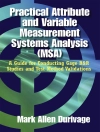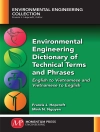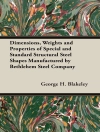This book presents the proceedings of the 11th International Conference on Multimedia and Ubiquitous Engineering (MUE2017) and the 12th International Conference on Future Information Technology (Future Tech2017), held in Seoul, South Korea on May 22–24, 2017.
These two conferences provided an opportunity for academic and industrial professionals to discuss recent advances in the area of multimedia and ubiquitous environments including models and systems, new directions, and novel applications associated with the utilization and acceptance of ubiquitous computing devices and systems. The resulting papers address the latest technological innovations in the fields of digital convergence, multimedia convergence, intelligent applications, embedded systems, mobile and wireless communications, bio-inspired computing, grid and cloud computing, semantic web, user experience, HCI, and security and trust computing.
The book offers a valuable resource for a broad readership, including students, academic researchers, and professionals. Further, it provides an overview of current research and a “snapshot” for those new to the field.
Spis treści
MUE2017.- 1 Multimedia Modelling and Processing.- 2 Multimedia and Digital Convergence.- 3 Ubiquitous and Pervasive Computing.- 4 Ubiquitous Networks and Mobile Communications.- 5 Intelligent Computing.- 6 Multimedia and Ubiquitous Computing Security.- 7 Multimedia and Ubiquitous Services.- 8 Multimedia Entertainment.- 9 Other IT and Multimedia Applications.- Future Tech2017.- 1 Hybrid Information Technology.- 2 High Performance Computing.- 3 Cloud and Cluster Computing.- 4 Ubiquitous Networks and Wireless Communications.- 5 Digital Convergence.- 6.Multimedia Convergence.- 7 Intelligent and Pervasive Applications.- 8 Security and Trust Computing.- 9 IT Management and Service.- 10 Bioinformatics and Bio-Inspired Computing.- 11 Database and Data Mining.- 12 Knowledge System and Intelligent Agent.- 13 Game and Graphics.- 14 Human-centric Computing and Social Networks.
O autorze
James J. Park.
James J. (Jong Hyuk) Park received his Ph.D. degree in Graduate School of Information Security from Korea University, Korea. From December, 2002 to July, 2007, Dr. Park had been a research scientist of R&D Institute, Hanwha S&C Co., Ltd., Korea. From September, 2007 to August, 2009, He had been a professor at the Department of Computer Science and Engineering, Kyungnam University, Korea. He is now a professor at the Department of Computer Science and Engineering, Seoul National University of Science and Technology (Seoul Tech), Korea. Dr. Park has published about 100 research papers in international journals and conferences. He has been serving as chairs, program committee, or organizing committee chair for many international conferences and workshops. He is a president of the Future Technology Research Association International (FTRA) and Korea Information Technology Convergence Society (KITCS). He is editor-in-chief of Human-centric Computing and Information Sciences(HCIS) by Springer, International Journal of Information Technology, Communications and Convergence (IJITCC) by Inder Science, and Journal of Convergence (Jo C) by FTRA Publishing. He is Associate Editor / Editor of 14 international journals including 8 journals indexed by SCI(E). In addition, he has been serving as a Guest Editor for international journals by some publishers: Springer, Elsevier, John Wiley, Oxford Univ. press, Hindawi, Emerald, Inderscience. His research interests include security and digital forensics, Human-centric ubiquitous computing, context awareness, multimedia services, etc. He got the best paper awards from ISA-08 and ITCS-11 conferences and the outstanding leadership awards from IEEE HPCC-09, ICA3PP-10, IEE ISPA-11, and PDCAT-11. Dr. Park’ s research interests include Digital Forensics, Security, Ubiquitous and Pervasive Computing, Context Awareness, Multimedia Service, etc. He is a member of the IEEE, IEEE Computer Society, KIPS, KICS, KIISC, KMMS, KDFS and KIIT.
Shu-Ching Chen
Dr. Shu-Ching Chen is an Eminent Scholar Chaired Professor in the School of Computing and Information Sciences (SCIS), Florida International University (FIU), Miami. He has been a Full Professor since August 2009 in SCIS at FIU. Prior to that, he was an Assistant/Associate Professor in SCIS at FIU from 1999. He received his Ph.D. degree in Electrical and Computer Engineering in 1998, and Master’s degrees in Computer Science, Electrical Engineering, and Civil Engineering in 1992, 1995, and 1996, respectively, all from Purdue University, West Lafayette, IN, USA. He is the Director of Distributed Multimedia Information Systems Laboratory (DMIS) and the Co-Director of the Integrated Computer Augmented Virtual Environment (I-CAVE). His main research interests include multimedia big data, content-based image/video retrieval, multimedia data mining, multimedia systems, and Disaster Information Management. Dr. Chen has authored and coauthored more than 300 research papers in journals, refereed conference/symposium/workshop proceedings, book chapters, and four books. Dr. Chen has been the PI/Co-PI of many research grants from NSF, National Oceanic and Atmospheric Administration (NOAA), Department of Homeland Security, Army Research Office, Naval Research Laboratory (NRL), Florida Office of Insurance Regulation, IBM, and Florida Department of Transportation with a total amount of more than 26 millions.
Dr. Chen was named a 2011 recipient of the ACM Distinguished Scientist Award. He received the best paper awards from 2006 IEEE International Symposium on Multimedia and 2016 IEEE International Conference on Information Reuse and Integration. He was awarded the IEEE Systems, Man, and Cybernetics (SMC) Society’s Outstanding Contribution Award in 2005 and was the co-recipient of the IEEE Most Active SMC Technical Committee Award in 2006. He was also awarded the Inaugural Excellence in Graduate Mentorship Award from FIU in 2006, the University Outstanding Faculty Research Award from FIU in 2004, the Excellence in Mentorship Award from SCIS in 2010, the Outstanding Faculty Service Award from SCIS in 2004 and 2014, and the Outstanding Faculty Research Award from SCIS in 2002 and 2012. He is a fellow of IEEE, AAAS, and SIRI.
He has been a General Chair and Program Chair for more than 60 conferences, symposiums, and workshops. He is the founding Editor-in-Chief of International Journal of Multimedia Data Engineering and Management, and Associate Editor/ Editorial Board of IEEE Trans. on Multimedia, IEEE Multimedia, IEEE Trans. on Human-Machine Systems, and other 13 journals. He served as the Chair of IEEE Computer Society Technical Committee on Multimedia Computing. He is Co-Chair of IEEE Systems, Man, and Cybernetics Society’s Technical Committee on Knowledge Acquisition in Intelligent Systems. Dr. Chen also has been a guest editor for more than ten journal special issues. He was amember of three steering committees (including IEEE Transactions on Multimedia) and several panels for conferences and NSF. He also serves/served as a member of technical program committee for more than 360 professional meetings. Dr. Chen is also the Co-Founder of Bay Area Multimedia
Kim-Kwang Raymond Choo
Since completing his Ph.D. in Information Security in February 2006, he have (co)authored a number of publications in the areas of anti-money laundering, cyber and information security, and digital forensics including a book published in Springer’s “Advances in Information Security” book series, six Australian Government’s Australian Institute of Criminology (AIC) refereed monographs, five refereed book chapters, 34 refereed journal articles, 20 refereed conference articles and six parliamentary submissions. His research has been widely cited, including in key government reports such as the 2010 Australian Government House of Representatives Standing Committee on Communications Report on the Inquiry into Cyber Crime, 2011 Australian Government Joint Select Committee’s Report on Cyber-Safety, Working paper for the Twelfth United Nations Congress on Crime Prevention and Criminal Justice, United Nations Office on Drugs and Crime (UNODC) 2011 “Handbook on Identity-related Crime”, 2010 US CRS Report for Congress (Prepared for Members and Committees of Congress) entitled “Organized Crime: An Evolving Challenge for U.S. Law Enforcement”, International Telecommunication Union (ITU) 2011 “Understanding Cybercrime: A Guide For Developing Countries” report, and 2012 UNODC “Wildlife and Forest Crime Analytic Toolkit” report. (His Google Scholar h-index is 15 – http://scholar.google.com.au/citations?user=r RBNI6AAAAAJ&hl=en).
His work has been at a strategic level, investigating current and predicted threats to ICT systems with a view to making evidence-based policy-relevant recommendations about protection and prevention. He hasdemonstrated the capacity to span a broad range of conceptual activities – from understanding technical details to identifying potential high-level threats – and to provide leadership in identifying priorities and opportunities and synthesising key issues and information in written and verbal fashion. He holds an Australian Government security clearance.
He regularly represents his employers to undertake high level consultations with Government and law enforcement agencies, academics and industry peak bodies in Australia and overseas (e.g. USA, Singapore, Hong Kong, Taiwan, Indonesia, and China). He has demonstrated that He maintains professionalism, integrity, ethical stewardship of resources in these high level consultations; and to collaborate with senior stakeholders in the public sector, private sector, think tanks and academia to cultivate ideas and deliver results. He has been an invited speaker for a number of events in Australia and overseas (e.g. 2011 United Nations Office on Drugs and Crime–International Telecommunication Union (UNODC-ITU) Asia-Pacific Regional Workshop on Fighting Cybercrime and 2011 (Ministerial-level) Korea-Australia-New Zealand (KANZ) Broadband Summit 2011) including delivering Keynote/Plenary Speeches at ECPAT Taiwan’s 2008 Conference on Criminal Problems and Intervention Strategy, 2010 International Conference on Applied Linguistics and 2011 Economic Crime Asia Conference, and Invited Lecture at the Bangladesh Institute of International and Strategic Studies. He was also invited to participate in the 2012 Coalition Parliamentarians Online Safety Working Group’s roundtable (established to consult with key technology, education and cyber-safety leaders, as well as other interested parties, to further develop its online safety policy in the areas of education, regulation and enforcement), and the 11th IISS Asia Security Summit, the 2012 Shangri-La Dialogue (all expenses paid for).
He has also been interviewed by the Australian media: Australian Government House of Representatives 'About the House’ magazine, ABC News, Advertiser, ARN, Canberra’s City News magazine, Canberra Times, Computerworld.com.au, Direct Magazine, Herald Sun (& Career One), His Business Magazine, SA Defence Magazine, SC Magazine, Sydney Morning Herald (& Business Day), The Age, The Australian, ZDNet Australia; and International media: Asia Pacific Security Magazine, Sunday Times, E-finance & Payments Law & Policy, Electric New Paper, 938Live radio, The Star, Future Gov, Prepaid Trends magazine, and SC Magazine (US).
He was one of over 20 international (and one of two Australian) experts consulted by the research team preparing Mc Afee’s commissioned report entitled “Virtual Criminology Report 2009: Virtually Here: The Age of Cyber Warfare”. He has served as an editorial board member for a number of international journals, program committee member (and reviewer) for a number of international conferences, workshop/conference coordinator, and reviewer for a number of international conferences and journals in the areas of information security and cyber crime. More recently in 2011/2012, He was a member of the Australian Computer Society (ACS) Cyber Task Force of experts formed in October 2011, and is a member of ACS Specialism Advisory 'Information Security’ Group.
He is particularly aware that the time-specific nature of many political issues and the generally pressured work style in the government environment accentuate tight timeline, quality and other pressures. His awards and speaking invitations are testaments to the value of his work and potential to undertake work of significant international impact.


